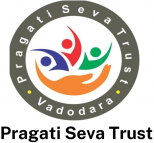Welfare Activities for Social & Economic Development
Welfare of Street Children
This specialized centre has been operating for the integrated uplift of destitute and neglected street children. Devoid of parental care, these unfortunate children were engaged in street begging, rag – picking, utensil cleaning at road-side dhabas (eateries) and other similar petty jobs. They could never go to school; neither could they dream of a better life. . Complete medical check-up is done and necessary medical aid is given to every child. Nutritious food and proper clothing for summer and winter is provided to every child.
School books and stationery are provided free of cost. Vocational training is imparted in meaningful trades and skills to make them self-earning members of society. They are trained in making candles, chalks, agarbattis, book-binding, chair-darning, etc. Special attention is paid towards their health, hygiene, physical fitness and proper nutrition.
Sewing & Embroidery Training Centre
Six months’ free training course in which girls are trained in cutting and stitching of garments, knitting, fabric painting, interior decoration and embroidery is being run on a regular basis. Preferance is given to girls & widows from poor families. The deserving ones are provided with sewing machines at the completion of the course. Special classes in cooking, food preservation & home making are also arranged from time to time.
Help to Victims
Victims of road accidents and natural calamities like flood, famine, earthquake and fire are given every possible help.
Cloth Bank
Clothes, old and new, donated by people are stored according to various age groups and are distributed to the needy from time to time
Vocational Training Centre
A Centre has been set up to impart vocational training to unemployed youth. The boys/girls are trained in the field of electric/electronic goods repair and maintenance. Flat machine training is also given.
Guidance and Training for Income Generating Activities
Income-Generating Programmes The main purpose of an IGP therefore is the promotion of a better quality of life for all citizens. In order to achieve this there is a need to develop vocational skills, knowledge, attitudes, and values, and to ensure that these are used to generate income. Another important purpose is to upgrade work ethics so that people become useful and productive members of society. Only then can they meaningfully contribute to nation building. The central focus of IGPs as provided in this volume is to alleviate poverty and to contribute to the development of human resources. This is achieved in the following ways:
- By empowering people to identify their economic needs and explore ways and means of fulfilling those needs.
- By developing self-confidence and ability to undertake income generating activities through appropriate and adequate training and motivation.
- By providing opportunities for continuous upgrading of vocational knowledge and skills for gainful employment.
- By developing a team spirit for working together for sustainable social and economic growth.
Community activities
Community activity is part of ‘civic responsibility’. It’s about doing things in our community because we want to or feel we should, rather than because we have to by law. You can take civic responsibility and be active in your community by:
- joining a Surf Life Saving Club, a scouting group or a local environmental or clean-up group
- helping with a primary school play, or coordinating or coaching junior sport
- setting up an arts space for the community or getting involved in youth radio
- being part of a youth advisory group through the local council
- promoting causes – for example, refugee rights, bushfire recovery and charities.
Your child might be interested in online civic or community activities – for example, an online campaign to save a local area of parkland. Online community involvement can motivate teenagers to get involved in face-to-face community activities.
